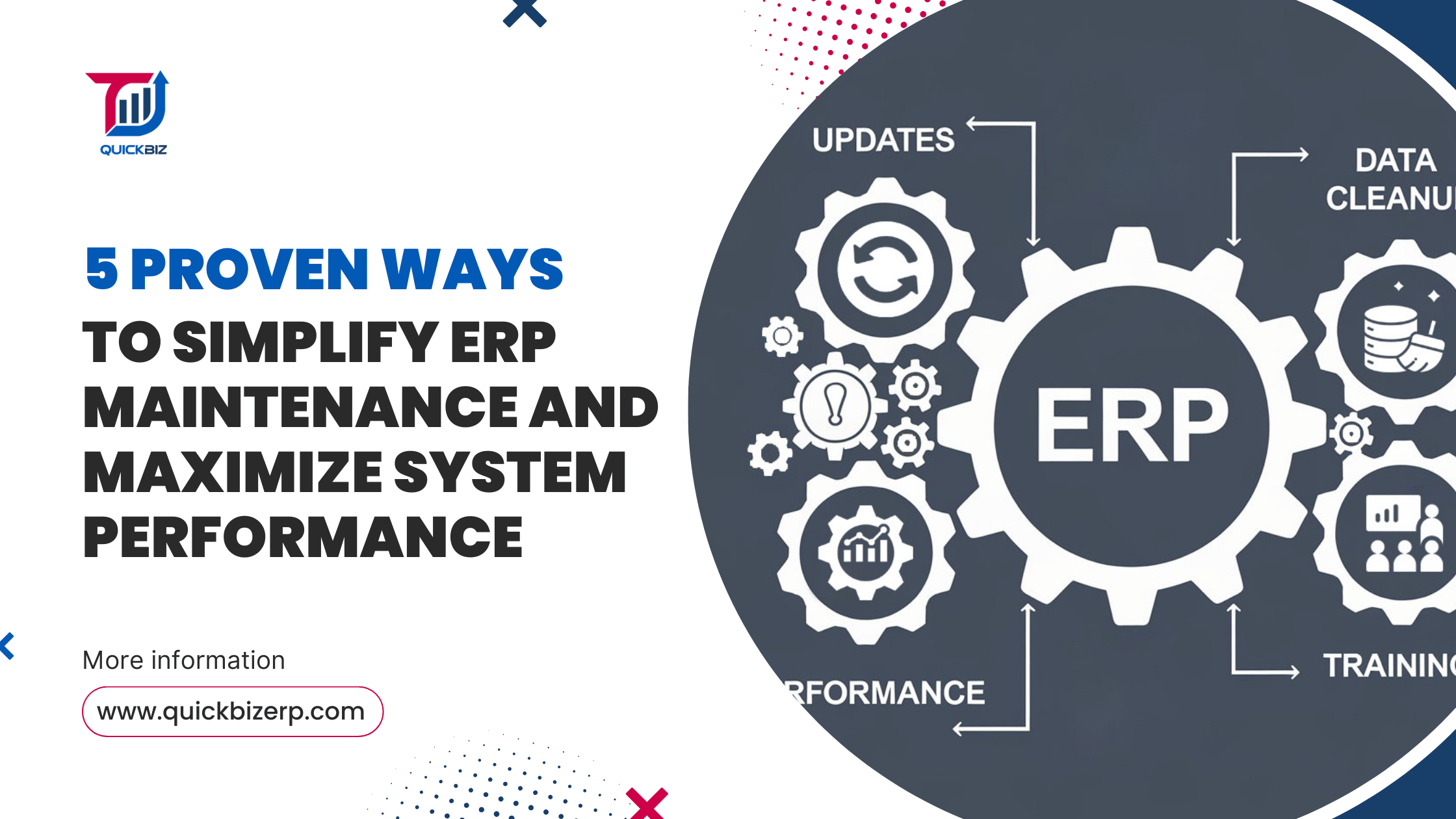5 Proven Ways to Simplify ERP Maintenance and Maximize System Performance

Introduction
In today’s fast-paced business landscape, an efficiently functioning Enterprise Resource Planning (ERP) system is a cornerstone of operational success. However, even the most advanced ERP solutions require consistent maintenance to ensure optimal performance and longevity.
Neglecting ERP upkeep can lead to system inefficiencies, security vulnerabilities, and costly downtimes—issues that no business can afford. By adopting proactive maintenance practices, organizations can not only enhance system reliability but also maximize their return on investment (ROI).
This blog outlines five proven strategies to simplify ERP maintenance, enabling businesses to reduce complexities, mitigate risks, and ensure seamless operations. Whether you’re managing routine updates or addressing critical issues, these actionable tips will help you keep your ERP system running at its best.
1. Regular System Updates
Keeping your ERP software updated is essential to leverage the latest features, enhancements, and security patches.
- Why it matters: Updates ensure compatibility with modern tools and prevent vulnerabilities that hackers may exploit. For instance, staying informed about ERP trends in 2024 can guide businesses to make smarter update decisions.
- How to execute: Establish a schedule for updates and work closely with your ERP vendor to minimize downtime during implementation.
Routine updates can significantly improve system functionality and extend its lifecycle.
2. Periodic Data Cleanup
Over time, ERP systems accumulate redundant and outdated data, which can slow down operations.
- Data management: Regularly review and purge unnecessary data from the system, aligning with best practices like those outlined in streamlining business operations.
- Organizational benefits: Cleaner data improves reporting accuracy and ensures faster processing speeds.
A well-maintained database enhances overall system performance and aids in informed decision-making.
3. Employee Training and Support
Even the best-maintained ERP system is only as effective as its users.
- Skill-building: Train employees on new features and updates to maximize system utilization, drawing inspiration from cloud ERP benefits for employee adoption strategies.
- Continuous support: Provide access to resources, help desks, and troubleshooting guides to address user challenges.
By fostering user proficiency, businesses can reduce system misuse and downtime.
4. Monitor Performance Metrics
Constantly tracking the health and performance of your ERP system is crucial for identifying potential issues before they escalate.
- Key metrics to monitor: System uptime, transaction processing times, and error rates.
- Proactive action: Use monitoring tools to detect anomalies and take corrective measures promptly. Solutions like QuickBiz ERP integration can offer built-in analytics to simplify this process.
Regular performance reviews keep the system operating efficiently and avoid unexpected disruptions.
5. Partner with Your ERP Vendor
ERP vendors play a critical role in ensuring smooth maintenance and support.
- Collaborative approach: Maintain open communication with your vendor for updates, technical support, and troubleshooting. For instance, explore how QuickBiz ERP's SaaS model enhances maintenance workflows.
- Leverage expertise: Many vendors offer maintenance packages and professional services to optimize your system.
A strong vendor relationship ensures access to expert guidance and resources for long-term success.
Conclusion
Effective ERP maintenance is a strategic investment that pays dividends in system reliability, efficiency, and business continuity. By focusing on regular updates, data management, user training, performance monitoring, and vendor collaboration, organizations can simplify the maintenance process and unlock the full potential of their ERP systems.
Prioritize proactive maintenance to stay ahead of challenges and maximize the ROI from your ERP investment. A well-maintained ERP system isn’t just an operational tool—it’s a competitive advantage in today’s dynamic business environment.

